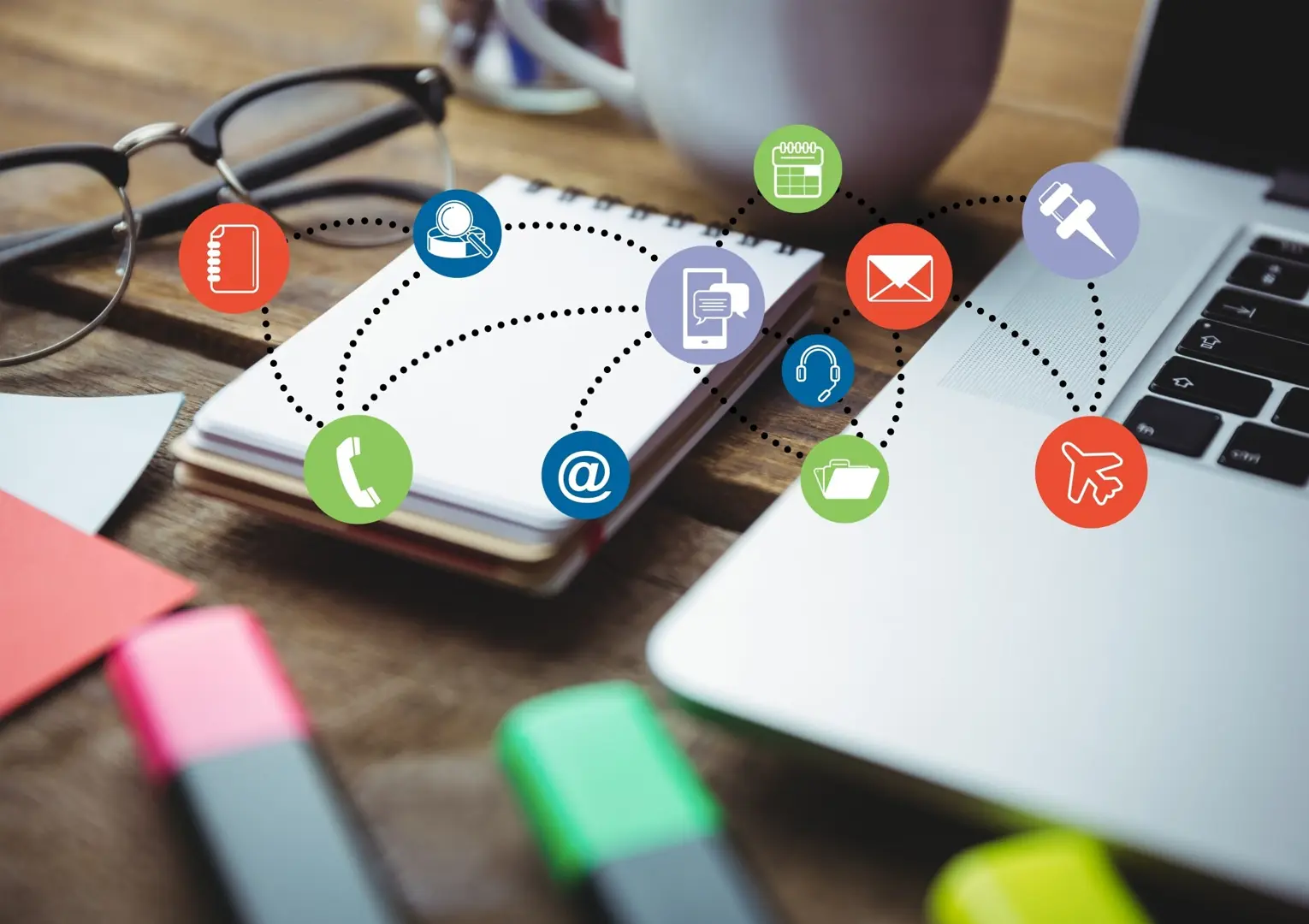Digital Marketing is: A Business Weapon in the All-Online Era
May 19, 2025
marketing
Share This Article

Almost every second of our lives is now intertwined with the digital world. This shift doesn't just change our lifestyle—it transforms the way we do business. In this situation, digital marketing is not just an option; it's a necessity if you want your business to stay relevant and competitive.
In this article, Labamu will break down what digital marketing is, why it matters, and how you can start applying it. Let’s dive in!
Understanding Digital Marketing
According to data from GoodStats, the number of internet users in Indonesia continues to grow each year. In 2024, there were more than 185 million users recorded—a 24.6% surge, the highest increase since 2018. This fact proves that the internet has become an inseparable part of people's lives.
For business owners and marketers, this trend is clearly impossible to ignore. Having an online presence is no longer just a supplement; it's a core necessity for building a brand, reaching customers, and staying competitive in the market.
That’s why relying solely on traditional marketing strategies is no longer enough. It’s time for you to understand and implement digital marketing strategies.
According to Intuit Mailchimp, digital marketing is the promotion of brands to connect with potential customers through the internet and various digital platforms—including email, social media, web advertising, text messaging, and multimedia.
Simply put, as long as marketing communication is carried out through digital channels, it falls under the umbrella of digital marketing.
Benefits of Digital Marketing for Businesses
Digital marketing continues to stand out for its ability to reach a vast audience. But beyond its broad reach, this strategy offers several other strengths that can significantly enhance marketing effectiveness. Here are some of the main benefits of digital marketing:
1. Wide Reach with Precise Targeting
With digital marketing, you can reach potential customers anywhere without geographical limits. More importantly, it allows you to target audiences that are relevant to your product or service—based on their preferences, behaviors, and even location.
2. Cost Efficiency
Compared to traditional marketing, running digital campaigns is generally more affordable. Even with a limited budget, you can start building brand awareness and attracting prospects through social media, email, or blog content.
3. Measurable Results and Impact
Every digital activity can be tracked, monitored, and analyzed in real time. This makes it easier to measure the effectiveness of your campaigns—whether through website traffic, ad performance, or conversion rates.
4. Enhanced Personalization
Digital marketing gives you access to audience data that can be used to craft more personalized marketing messages. With proper segmentation, you can engage customers based on their interests and needs, increasing the chances of conversion.
5. Real-Time Interaction and Fast Conversions
One of the key advantages of digital marketing is its ability to create two-way interactions. Customers can instantly ask questions, give feedback, or even make a purchase with just a few clicks.
Types of Digital Marketing
As digital interactions continue to evolve, digital marketing can be carried out through various methods—each with its own strategies and benefits. Here are some common types of digital marketing that you can consider:
Types of Digital Marketing | Brief Explanation |
Website Marketing | The central hub of digital marketing activities that showcases the brand, products, and important information. |
Search Engine Optimization (SEO) | Increasing website visibility in search engine results organically. |
Search Engine Marketing (SEM) | Displaying paid ads on search engines to reach the target market faster. |
Content Marketing | Creating valuable content to attract and retain an audience. |
Social Media Marketing | Promoting business through social media to build interaction and community. |
Pay-per-click Advertising (PPC) | Paid advertising where advertisers pay only when their ads are clicked. |
Affiliate Marketing | Promotion through third parties with a commission system based on sales generated. |
Influencer Marketing | Partnering with influencers or digital creators to reach a wider and more loyal audience. |
E-mail Marketing | Sending emails to build relationships and drive conversions. |
Video Marketing | Using videos to deliver messages in an engaging and easy-to-understand way. |
Text Messaging | Sending instant messages via SMS or direct chat to customers. |
Display Advertising | Visual ads such as banners that attract attention on various websites. |
Native Advertising | Ads that blend seamlessly with content to feel more natural and less intrusive. |
Marketing Automation | Automating digital campaigns for more efficient and effective marketing. |
Omnichannel Marketing | A consistent customer experience across multiple digital channels in an integrated manner. |
Selain strategi-strategi yang sudah disebutkan, tentu masih banyak strategi lain dalam pemasaran digital. Soal mana yang terbaik, tentu tergantung pada kebutuhan masing-masing bisnis.
Key Performance Indicators (KPI) in Digital Marketing
Just like conventional marketing strategies, digital marketing also requires indicators to measure effectiveness and objectively assess campaign performance. Here are some common KPIs used in digital marketing:
KPI | Main Functions |
Click-Through Rate (CTR) | Measuring how effective an ad or call to action (CTA) is by looking at the percentage of users who click compared to the number of impressions. |
Conversion Rate | Shows the percentage of users who take the desired action (such as making a purchase or filling out a form) out of the total audience. |
Website Traffic | Measures the number of visits to a website within a specific period. |
Web Traffic Sources | Indicates the source of website visitors, such as from social media, search engines, or email marketing. |
Total Visits vs. Unique Visits | Compares the total number of visits with the number of unique users to assess attractiveness and retention. |
Returning Visitors | The percentage of visitors who return. This indicates engagement and interest in the content created. |
Average Time on Page | Measures the average time users spend on a single page—the longer, the better, usually. |
Social Media Engagement | Measures social media interactions (likes, shares, comments, and followers) to assess brand awareness. |
Marketing ROI | Calculates how much revenue is generated compared to the costs spent on the campaign. |
By understanding and monitoring the right KPIs, you can create a more focused and effective digital marketing strategy. Remember, the success of digital marketing is not only measured by high traffic but by how well that traffic can be converted into loyal customers.
Also Read: 101 Marketing Plan — Everything You Need to Know Is Here!
Besides the KPIs mentioned above, there are many others you can use—depending on the type of digital campaign you run.
By now, you understand that digital marketing is no longer just an optional addition but a core strategy that shapes the growth direction of your business.
For those of you who want to run more effective digital marketing campaigns, Labamu now offers a new feature called “Campaign Management” that helps you plan, manage, and monitor your campaign performance more easily and measurably—all within a single app.
Let’s manage your digital campaigns smarter—download the Labamu app now on Google Play or the App Store!














